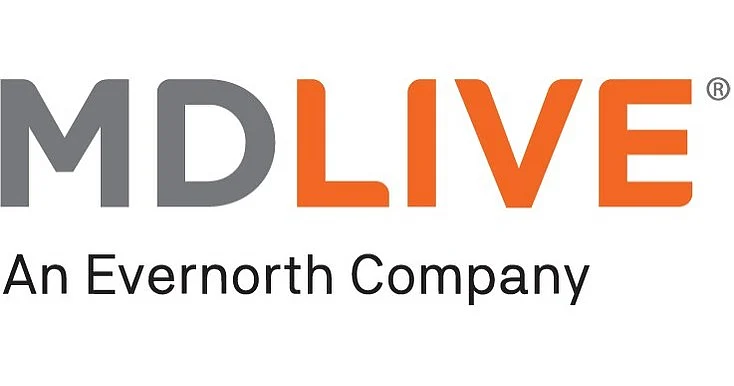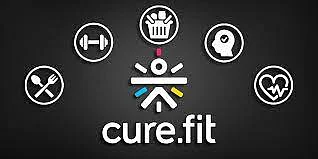We’ve come a long way from the days of in-person and face-to-face consultations to online healthcare services. We’ve seen societal and technological changes, and we’re now entering a new era where online health services are redefining how we access wellness with the convergence of convenience, efficiency, and flexibility.
Central to this paradigm shift, lies Telehealth - an impetus driving us into the era of online healthcare services. Let's explore how telehealth is transforming patient experiences, overcoming obstacles, and paving the way for an inclusive future in healthcare.
Advantages Of Telehealth
The primary benefit of Telehealth is that it breaks down geographical barriers, allowing patients to access medical expertise no matter where they are located. This means that patients can easily connect with healthcare providers for consultations, follow-up, and advice.
The cost-effectiveness of online healthcare is one of the major advantages. Virtual consultations typically do not require the patient to commute, which reduces travel costs and time commitment. Also, the overhead costs of physical facilities are kept to a minimum, resulting in more affordable services.
The affordability of online healthcare is another major advantage. Patients, insurers, and providers all benefit from the affordability of online healthcare. This is especially important for those in rural or underserved areas who may not have access to quality medical care due to physical limitations or financial constraints.
This inclusivity helps to bridge the gap in healthcare accessibility, which makes healthcare more accessible for diverse populations.
Best Telehealth Platforms
1. Teladoc: Teladoc is one of the pioneers in telemedicine. It’s a leading platform that links patients to board-certified doctors through virtual consultations. With Teladoc, you can schedule appointments, have video consultations, and get prescriptions or medical advice all from the comfort of your home or office. Whether you’re looking for a routine health check, a dermatology consultation, a mental health support call, or any other healthcare need, Teladoc has you covered. The platform’s easy-to-use interface ensures a smooth experience. This makes Teladoc a go-to choice for those looking for quick and convenient medical care without the hassle of a traditional in-office visit. Teladoc takes healthcare access to the next level.

2.HealthTap: HealthTap is an all-in-one healthcare app that connects you to qualified doctors for a virtual consultation. Through this dynamic platform, you can ask questions about your health, share pictures, and get personalized advice. This is an interactive and direct interaction between you and your doctor. Additionally, you can also use HealthTap to track your symptoms and get medication reminders. HealthTap provides you with all the tools you need to manage your health. Its user-friendly design emphasizes accessibility, so you can get quick healthcare solutions from your smartphone. HealthTap is a great resource for those looking for prompt and personalized healthcare advice in the digital age. With its wide range of features, you can take control of your health journey. HealthTap promotes a seamless and technology-driven approach to personalized health care.

3. Babylon Health: Babylon Health is a wonderful healthcare tool with symptom-checking feature powered by AI. The platform provides users with an easy-to-use initial diagnosis when they enter their symptoms. The AI system creates a preliminary health assessment that provides users with valuable information about their conditions. This increase efficiency and it also provides a convenient way for users to assess their health status before seeking further medical care. But Babylon Health doesn’t stop with automated assessments. It also allows users to consult with health professionals directly via the platform. By integrating AI into the initial diagnostic process, Babylon Health streamlines the diagnostic process and allows for a smooth transition to professional guidance as needed. The platform’s commitment to leveraging AI in healthcare highlights its commitment to providing users with access to powerful tools for health evaluation. As a result, Babylon Health stands at the forefront of technology and medicine.

4. Amwell: Amwell is a full-service telehealth platform that provides a convenient way for patients to schedule secure video visits with healthcare providers. Amwell provides a wide range of healthcare services, including primary care, urgent care, behavioral health, and more, from the convenience of your home. The platform’s easy-to-use interface makes it easy to find the healthcare professionals you need, schedule an appointment, and have a secure video consultation. With Amwell’s versatility and dedication to providing a wide variety of healthcare services, it’s easy to see why it’s so popular among users. Amwell bridges the gap between patients and healthcare providers through modern technology. It’s a great example of how healthcare delivery is evolving, providing convenient and efficient ways for people looking for diverse medical services all in a virtual environment.

5. MDLIVE: MDLIVE is an online board-certified physician, psychiatrist, and therapist that provides virtual consultations. It provides a wide range of medical specialties and provides convenient access to healthcare. MDLIVE focuses on mental health services as well as general medical care which makes it a great resource for those looking for holistic telehealth solutions. Prescription delivery is supported by MDLIVE, which makes virtual healthcare even more convenient.

6. Doctor On Demand: Doctor On Demand is a telehealth platform that provides video consultations with a wide variety of licensed healthcare professionals such as doctors, psychiatrists, psychologists, and many more. This innovative platform caters to diverse medical needs, from general health care to mental health support, but what makes it stand out is its commitment to instant access to a wide variety of healthcare providers, which makes it the perfect choice for anyone looking for fast and complete virtual healthcare solutions.
The platform’s focus on speed and inclusivity means that you’ll be able to connect with the right healthcare professional quickly and efficiently. With its wide range of services and emphasis on virtual accessibility, Doctor On Demand plays a key role in meeting the ever-changing needs of patients who want a convenient and responsive virtual healthcare consultation.

7. Lemonaid Health: One of the most prominent online healthcare tools is Lemonaid Health. The platform provides online consultations as well as prescription fulfillment. Lemonaid Health focuses on medical issues like ED, contraception, and select primary care needs. The platform’s success is due to its specialized approach and its easy-to-use interface. Lemonaid Health’s focus on addressing specific medical needs is in line with the current state of telehealth. If you’re looking for targeted and discreet online consultations that are easy to use, then Lemonaid Health is the right choice for you. The platform’s privacy focus and ease of use make it an attractive option for those who want targeted and streamlined online healthcare options. The Lemonaid Health team is committed to meeting the specific needs of their users in the online health space.

8. K Health: By combining AI and virtual consultations, K Health provides real-time healthcare assessments and tailored treatment plans. K Health’s unique approach is to empower users by providing valuable symptom insights, as well as virtual consultations, to improve accessibility and personalize healthcare. AI in K Health’s platform allows users to receive real-time, accurate health assessments. This creates a dynamic, responsive healthcare experience for users. The virtual consultations also help to break down geographical barriers, which allows users to interact with healthcare professionals in real time. K Health demonstrates a dedication to redefining the healthcare landscape. With personalized insights and tailored treatment plans, K Health provides a holistic and personalized approach to your well-being.
Site: https://khealth.com/

9. CureFit: CureFit is one of India’s leading health and wellness platforms that goes beyond the boundaries of traditional healthcare. The platform provides virtual consultations and valuable lifestyle & fitness advice to its users. This holistic approach to well-being is reflected in the integration of fitness & wellness programs into the platform, which creates a holistic health ecosystem. CureFit understands that people's health needs are multifaceted. They don't just treat ailments, they also proactively promote a healthy lifestyle on the platform. This approach is in line with the changing concept of holistic wellness. CureFit is a versatile & user-centric health and wellness tool that provides individuals in India with a single point of contact for all their health needs.

Telehealth Landscape Before And After COVID-19
In the years before COVID-19, the adoption of telehealth increased steadily, growing 44% from 2015 to 2019, according to GlobalMed. This trend was not just a reaction to the pandemic, but a reflection of a wider societal shift toward digital healthcare. Just before the global health crisis began, J.D.Power, an American data analytics firm, reported that 37% of the population had already used a telehealth service. In the post-pandemic era the landscape has changed dramatically. According to a 2022 study conducted by J. Doximity, 67% of the population has adopted telehealth, reflecting a significant change in consumer behavior and acceptability. A study published in September 2020 by Doximity revealed that 27% of the patients felt more comfortable with telehealth use after COVID-19. The pandemic forced large segments of the population to seek virtual consultations due to lockdown measures, social distancing, and an increased demand for remote healthcare solutions. Telehealth used to be seen as an afterthought, especially among younger generations. But in the post-covid era, it has become an essential and essential part of the healthcare ecosystem. According to a recent J. D. Power study, the use of virtual healthcare has become a normal part of people’s lives. Not only has the pandemic had a lasting impact, but it’s also had a lasting impact on how people view and use healthcare services. Patients’ attitudes toward virtual healthcare have changed as well. With 27% reporting newfound comfort, it’s clear that there’s been a positive change in how people view virtual healthcare.
Money Spend on Telehealth
Transportation, time off work, unnecessary ER visits, and hospital stays have all become a thing of the past when patients can access telehealth. According to a study by SingleCare released in 2021, 62% of participants paid between $1 and $30 out of pocket for a single telehealth visit. Sixty-one percent of participants were covered entirely by insurance or Medicare. According to studies, patients with telehealth access spend between $19 and $121 on each visit, largely because they avoid costly emergency room visits. Investment in telehealth is skyrocketing. The first three months of 2021 alone saw an $8.2 billion investment in telehealth, more than double the amount from the same time last year. The economic benefits of telehealth aren’t just for the benefit of patients. The American Hospital Association reports that every $1 spent to set up a telehealth program yields an 11% return on investment or ROI. In other words, telehealth isn’t just a technological advancement, it’s a game-changer.
The Role Of AI In Healthcare Services
Artificial Intelligence (AI) and Machine Learning (ML) are revolutionizing the way healthcare services are delivered, improving diagnostic accuracy, treatment planning, and patient care. AI algorithms analyze large datasets to identify patterns and trends that might not be visible to the human eye. Machine learning helps predict disease outcomes, identify potential risks, and customize treatment plans.
ML algorithms continually learn from patient data to improve their ability to provide personalized healthcare solutions. These technologies also improve administrative processes, streamline resource allocation, and reduce operational costs.
Chatbots and Virtual Assistants that are powered by AI help improve patient interactions, answer questions, schedule appointments, and provide timely health information.
The combination of AI and ML is improving healthcare delivery and holds the promise to transform the industry by introducing a data-driven and patient-centered approach to medical care.


























